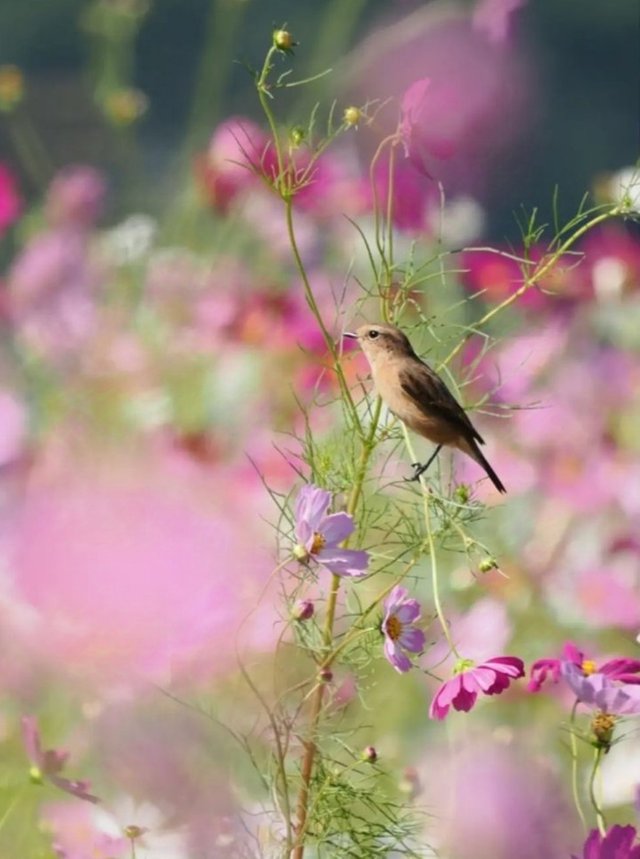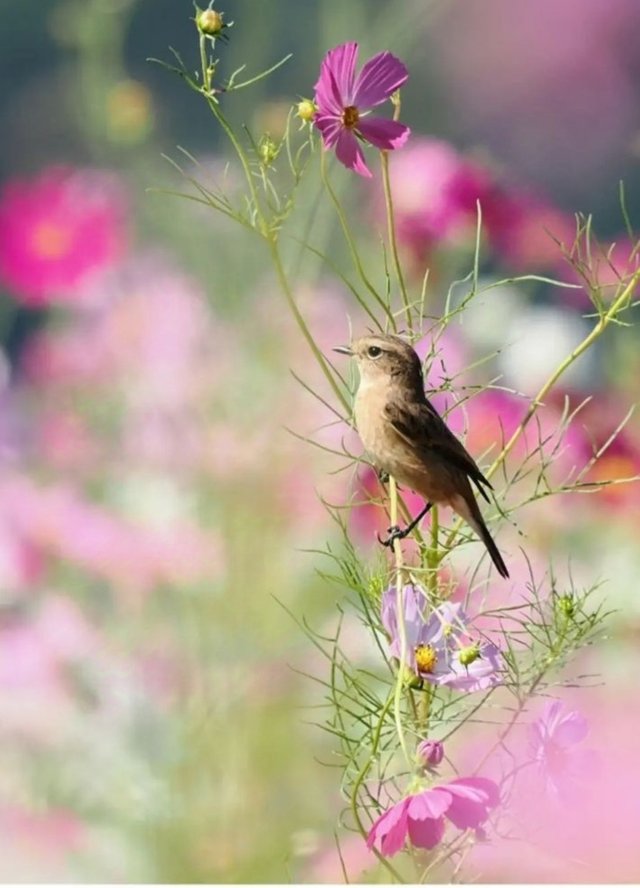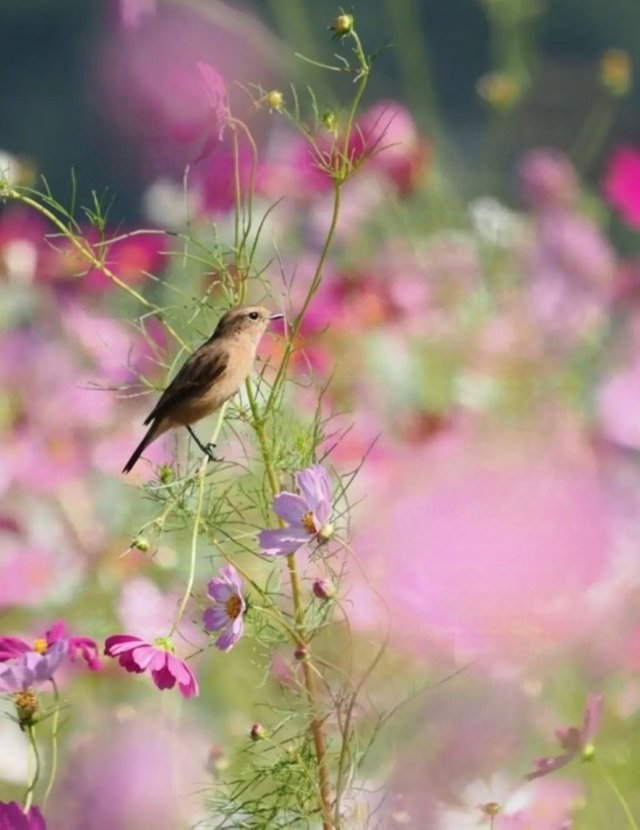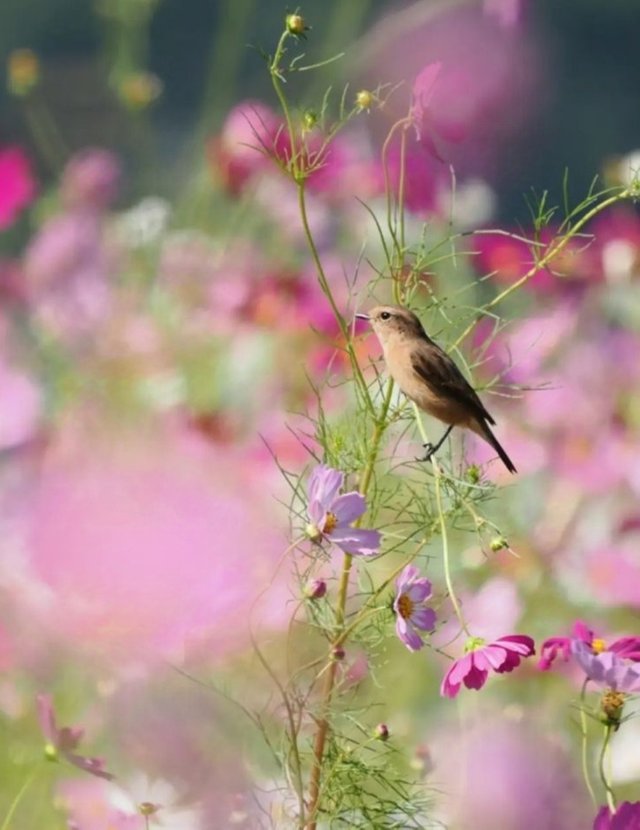So Beautiful African Stonechat Flower
The African stonechat is a small passerine bird in the Old World flycatcher family, Muscicapidae. It is widely distributed across sub-Saharan Africa, inhabiting open landscapes such as grasslands, savannas, agricultural fields, and coastal scrub. Known for its bright and contrasting plumage, the African stonechat is easily identifiable by its distinct coloration and active behavior.
Physical Description
The African stonechat is a small bird, measuring about 12–14 cm in length. Males have striking plumage, with a black head, throat, and upper chest, along with a bright orange-red breast and a white belly. A white collar separates the dark head from the back, which is a rich brown color. The wings are dark with white patches, which are particularly visible during flight. Females, though similar, are generally duller in appearance, with more muted tones of brown, lacking the males' stark contrast between black and red. Juveniles resemble females but have even less defined coloration and a streaky appearance.
Distribution and Habitat
The African stonechat is found throughout much of sub-Saharan Africa, excluding the most arid regions of the Sahara Desert and the dense central African rainforests. It thrives in open habitats such as grasslands, shrublands, and farmlands, where it can perch on low vegetation or fences to hunt for insects. It can also be found in more montane environments, including high-altitude grasslands and moorlands. The bird prefers areas with scattered bushes and shrubs that provide perching spots from which it can hunt or sing.
Behavior
African stonechats are known for their perky, upright posture and restless movements. They often perch prominently on fence posts, bushes, or tall grass stems, from which they make short sallies to catch insects in mid-air or forage on the ground. Their diet primarily consists of insects, spiders, and other small invertebrates, though they may occasionally eat seeds or berries.
Males are territorial and will often be seen perched conspicuously, singing to defend their territory. Their song is a series of melodic whistles, clicks, and chatters, which they often deliver from prominent perches. The stonechat’s call, a sharp "chak-chak" sound, is often heard when the bird is agitated or alarmed.




Thanks For Reading
Device Information
| Device | cannon eos 600D |
|---|---|
| Lens | 55-250 zoom leans |
| Location | Myanmar |
